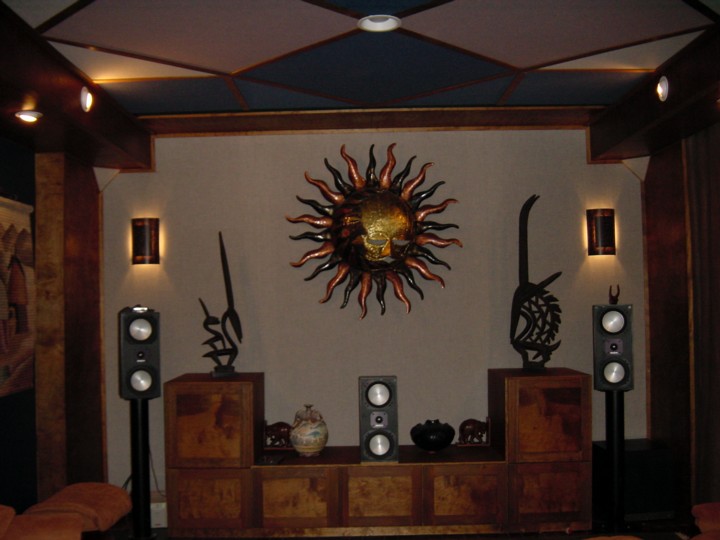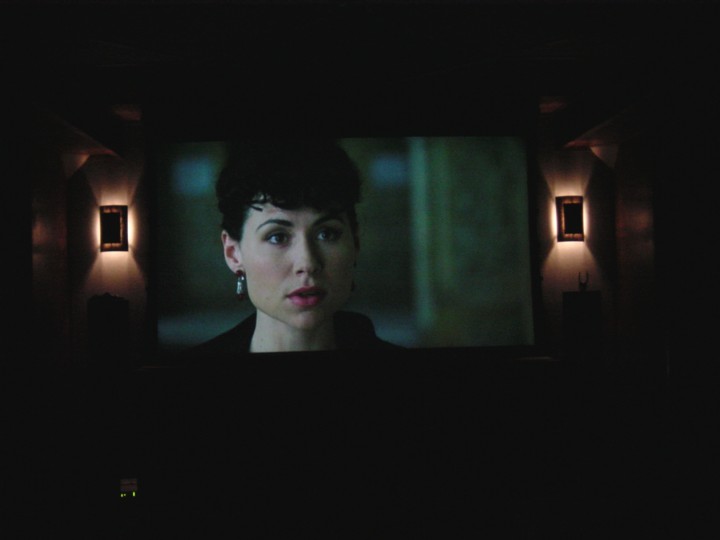SMART III - Video Calibration Toolkit
Steve Smallcombe's SMARTAVTWEAKS site

I have been using bias lights for the last year or so and there is no doubt they both improve the perceived black levels and make the room feel much more comfortable. In my case, I have sconces mounted on the front wall that is covered in gray fabric as can be seen the attached file. The light from the bulbs doesn’t reach the viewers directly, but form a diffuse pattern of light to the sides of the screen. Since this light should be a neutral as possible the front wall is gray. Since the light from the screen does not bounce onto the front wall, having it a lighter color is not a problem, and it makes the room seem like less of a cave. The other walls and ceiling are darker.

Getting a bulb that is fairly white while dimmed is a bit of a problem
and I am currently using halogen bulbs. Not ideal, but they appear much
more yellow in the pictures than to the eye. (Note added in 2012: I am now using some dimmable LED lights and their color temperature does not change substantially when dimmed.)

Here are the bias lights with the screen down and the projector on. I have the bias lights turned up a bit higher than I normally use to give a better idea of the pattern of light. We certainly never watch without them and we also typically have a dimmed high intensity spotlight on the table in front of the couch. That also seems to help make things more comfortable without casting much if any light on the screen.
Introduction to how SMART works
Frequently Asked Questions about SMART
Here is what's new is SMART III version 1.2
The Dummies Guide explains the SMART process in a non-technical way
Buy SMART III at EnhancedHT - your exclusive source for all SMART products
Having trouble? Learn the most common mistakes people make using SMART
Read about using bias lights to improve perceived black levels.
Here are some additional tips for the SONY projectors and solution to common problems.